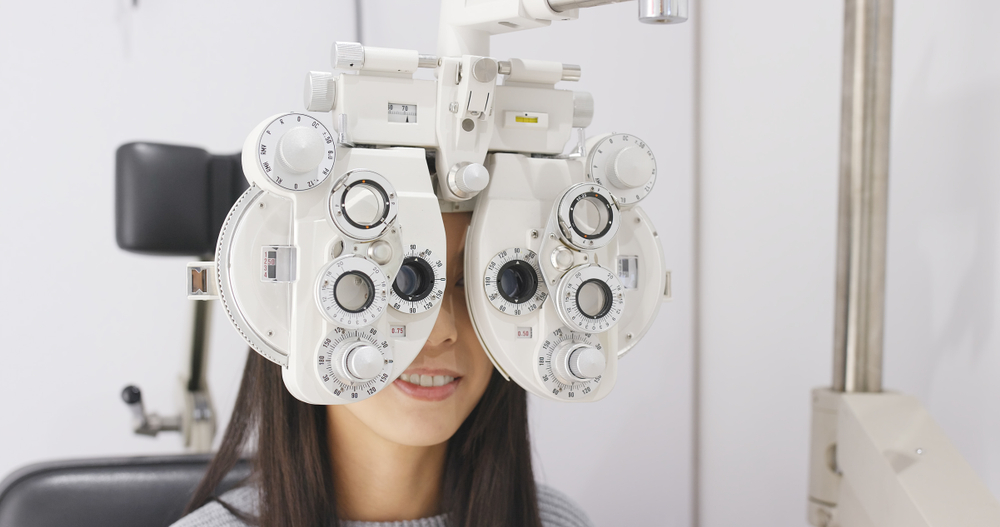
Regular eye exams are a crucial aspect of maintaining your overall health and well-being. Your eyes are not just windows to the world, but also a reflection of your body's overall health. By scheduling regular eye exams, you can proactively monitor your vision and detect any potential issues before they become more serious.
Understanding Comprehensive Eye Exams
A comprehensive eye exam is a thorough evaluation of your visual system, conducted by a licensed optometrist or ophthalmologist. During this exam, your optometrist will assess various aspects of your eye health. By undergoing a comprehensive eye exam, you can gain a clear understanding of the current state of your vision and eye health, and work with your optometrist to develop a personalized plan for maintaining and improving your visual well-being.
What to Expect During a Comprehensive Eye Exam
When you arrive for your comprehensive eye exam, your optometrist will begin by asking about your medical history, any vision-related concerns, and any medications you may be taking. This information helps them better understand your overall health and any potential factors that may be impacting your eye health.
Next, they will conduct a series of tests and assessments to evaluate your vision and eye health. This may include:
- Visual acuity testing: You will be asked to read an eye chart to determine your distance and near vision.
- Refraction: Your eye care provider will use specialized instruments to measure the precise refractive errors in your eyes, which can help determine the appropriate prescription for corrective lenses.
- Slit lamp examination: A slit lamp is used to closely examine the front and internal structures of your eyes, allowing your eye care provider to identify any abnormalities or signs of disease.
- Tonometry: This test measures the pressure inside your eyes, which is an important indicator of glaucoma risk.
- Dilation: Your pupils may be dilated with eye drops, which allows your eye care provider to get a better view of the internal structures of your eyes, including the optic nerve and retina.
- Additional testing: Depending on your individual needs, your eye care provider may perform additional tests, such as visual field assessments, color vision testing, or specialized imaging scans.
The entire comprehensive eye exam process typically takes between 45 minutes to an hour, and your optometrist will take the time to thoroughly explain the results and address any questions or concerns you may have.
Eye Conditions That Can Be Detected through Regular Eye Exams
Regular comprehensive eye exams are crucial for the early detection and management of a wide range of eye conditions, including:
- Refractive errors: Nearsightedness (myopia), farsightedness (hyperopia), and astigmatism are common refractive errors that can be easily diagnosed and corrected with prescription lenses or other treatments.
- Glaucoma: This condition is characterized by increased pressure within the eye, which can damage the optic nerve and lead to vision loss if left untreated. Regular eye exams are essential for the early detection and management of glaucoma.
- Cataracts: A cataract is a clouding of the eye's natural lens, which can cause blurred or distorted vision. Comprehensive eye exams can identify the presence and progression of cataracts, allowing for timely treatment.
- Macular degeneration: This condition affects the macula, the part of the eye responsible for central, detailed vision. Regular eye exams can help detect macular degeneration in its early stages, when treatment is most effective.
- Diabetic retinopathy: Individuals with diabetes are at an increased risk of developing this condition, which can cause damage to the blood vessels in the retina. Regular eye exams are crucial for monitoring and managing diabetic retinopathy.
- Dry eye syndrome: This condition occurs when the eyes do not produce enough tears or the tears evaporate too quickly. Comprehensive eye exams can help identify the underlying causes of dry eye and provide appropriate treatment.
- Eye infections and inflammatory conditions: Regular eye exams can help detect and address a variety of eye infections, such as conjunctivitis, as well as inflammatory conditions like uveitis.
The Importance of Early Detection in Eye Health
Early detection of eye conditions is crucial for maintaining your vision and overall eye health. Many eye diseases and conditions, such as glaucoma, macular degeneration, and diabetic retinopathy, can progress gradually and silently, often without noticeable symptoms in the early stages.
By scheduling regular comprehensive eye exams, you can take a proactive approach to your eye health and increase the chances of detecting any issues before they become more serious. Early detection allows your doctor to implement appropriate treatment strategies, often with better outcomes and a higher likelihood of preserving your vision.
For example, in the case of glaucoma, early detection and treatment can help slow the progression of the disease and prevent or delay vision loss. Similarly, early intervention for conditions like macular degeneration can help slow the deterioration of central vision and maintain your ability to perform everyday tasks.
Schedule Your Comprehensive Eye Exam with West End Eye Care Today
At West End Eye Care, we are dedicated to providing our patients with the highest quality eye care services, delivered with a personalized and compassionate approach. Our experienced and highly skilled optometrists are committed to helping you maintain and improve your vision, as well as your overall eye health.
To schedule your comprehensive eye exam with the trusted team at West End Eye Care, visit our office in Hartford or Glastonbury, Connecticut. Call (860) 295-4300 or (860) 633-7889 to book an appointment and take the first step towards protecting your vision and ensuring your long-term eye health.








